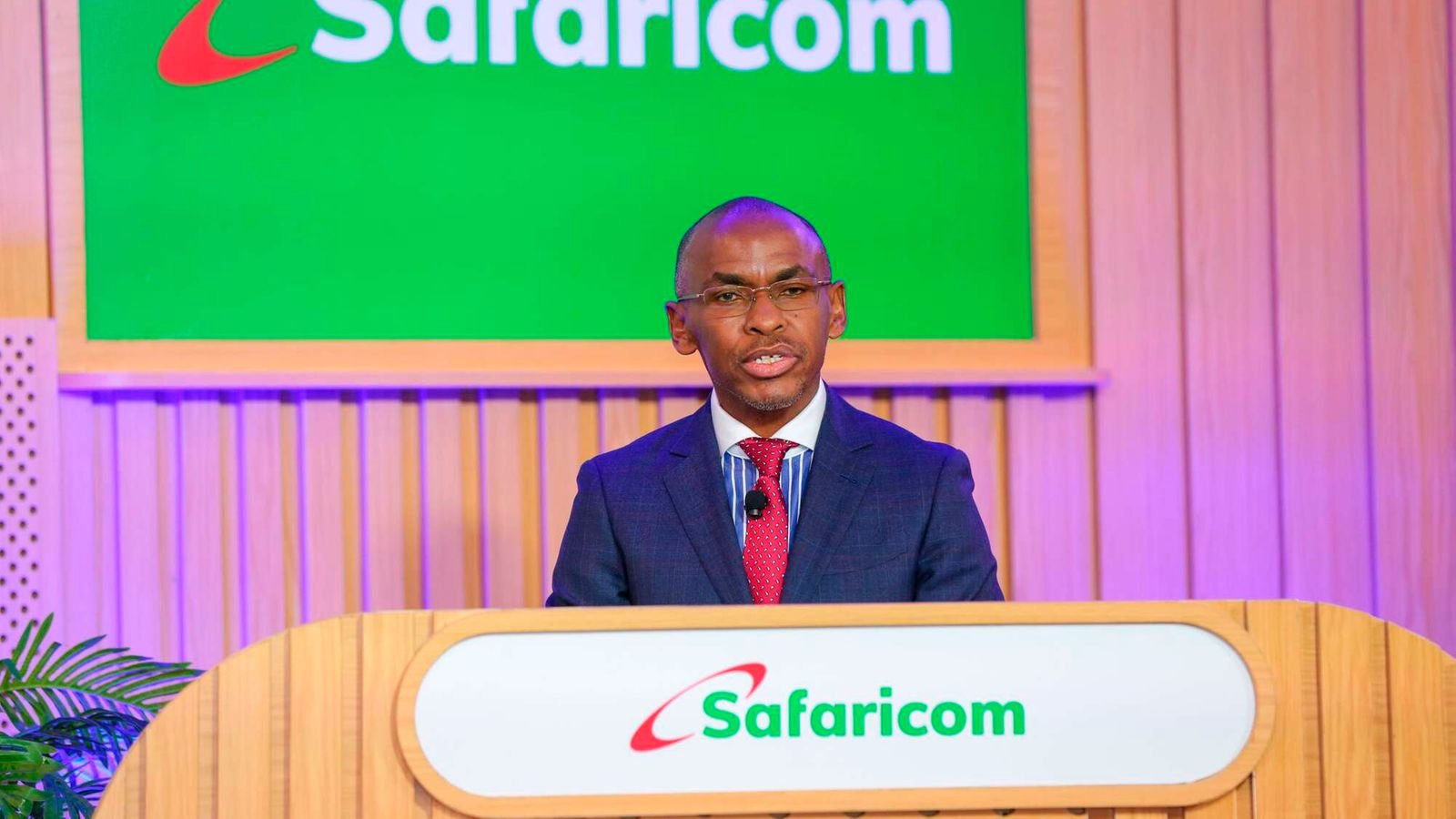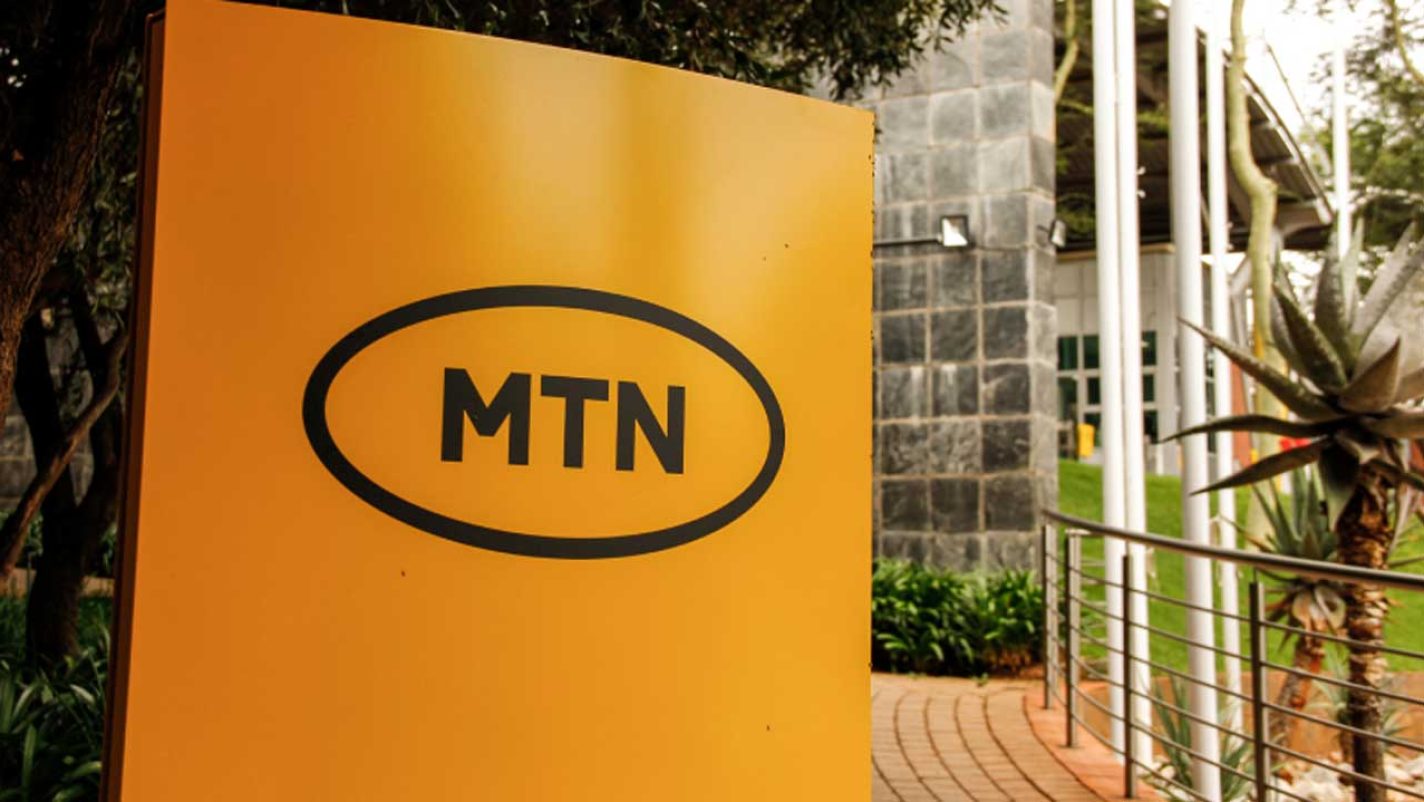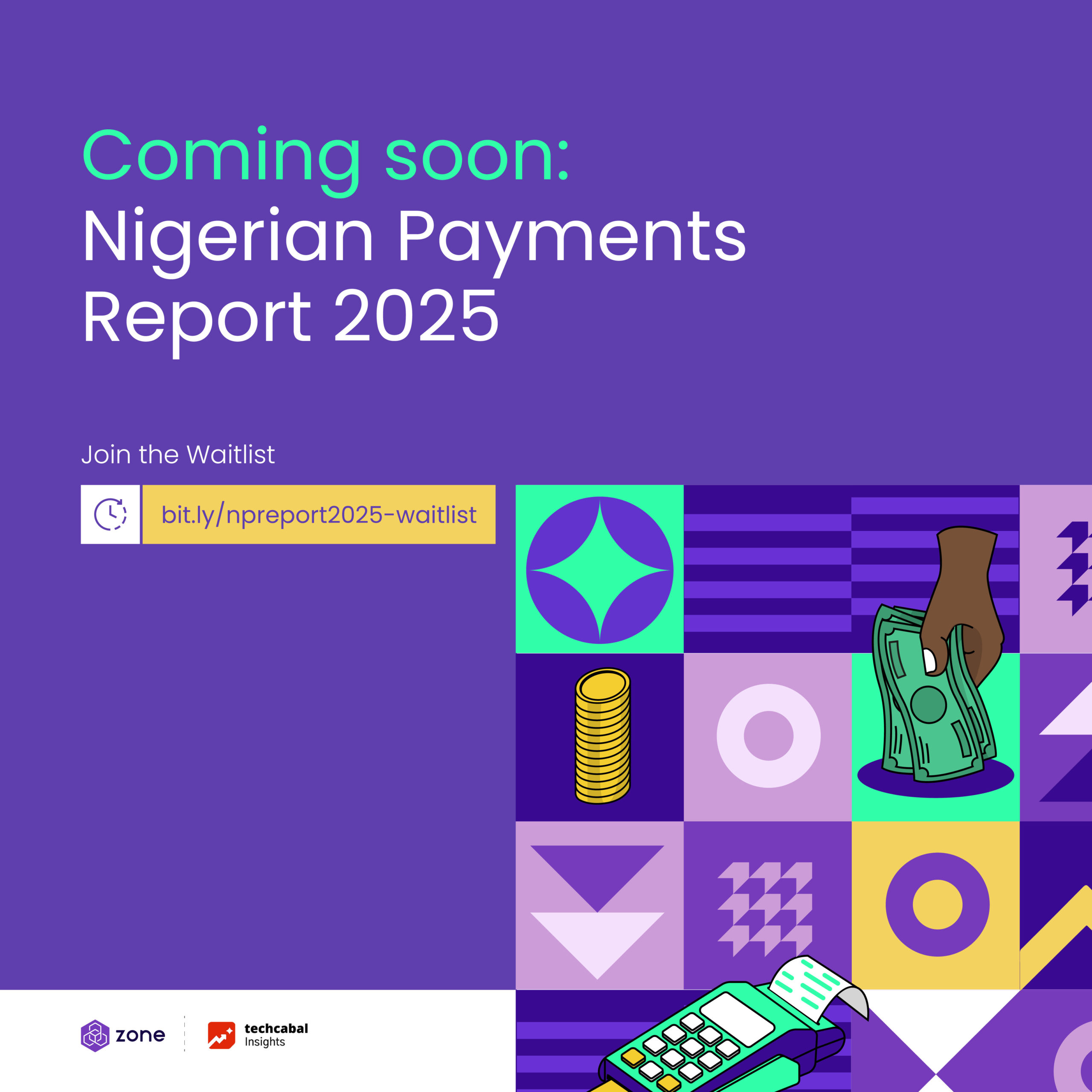Good morning.
Moonshot is back!
Last year, we hosted 4,000 visitors from across the globe at the Eko Convention Centre, where we had an awesome experience discussing AI, the creative economy, cleantech, emerging tech, big tech, digital commerce, and lots more. This year we have even bigger content tracks, new formats, more depth, and a sharper focus on execution.
If you need convincing to attend, watch the 2024 highlights. Early bird discount now available.
We have a lot of telecom stories in today’s dispatch. Let’s dig in.
PS: If you do one thing this week, let it be this: end your meetings on time. Don’t be like ChatGPT, which still hasn’t mastered the art of brevity. Your colleagues will thank you.
Safaricom wants a piece of satellite tech
MTN’s ₦1 trillion quarter: Nigeria’s telco titan is just getting started
Bayobab unveils fibre optic route linking Uganda to Kenya
Safaricom Ethiopia cuts losses by 65% in 2024
World Wide Web 3
Job Openings
Telecoms
Safaricom wants a piece of satellite tech
In Kenya, the scorned has become the MVP every telecom operator wants to get a deal with.
On May 9, Safaricom, Kenya’s largest telecom operator, told investors that it is exploring partnership options with satellite operators in the country. Who wants to wager a few dollars that Starlink is top of that list?
Starlink has gone from foe to friend in months, after Safaricom tried to get regulators to kick out the US-based satellite internet company in September 2024, citing its lack of physical presence in the country.
Shortly after, Safaricom CEO Peter Ndegwa told Bloomberg that it was open to a partnership with Starlink, but that deal never happened. Instead, its competitor Airtel Africa got there first.
For a satellite deal to happen, Safaricom has three options other than Starlink: Eutelsat OneWeb, AST SpaceMobile, and Globalstar. OneWeb is currently B2B-focused; Globalstar doesn’t provide consumer broadband; and SpaceMobile—which Safaricom ironically partnered with in 2023—is still testing its technology, making Starlink the most viable option.
Is a deal with Starlink still possible for Safaricom? The devil is in the details. Safaricom signed on to be a backhaul service provider for Airtel. The deal allows Starlink to connect Airtel’s cell towers to the internet via its satellites. This allows Airtel to bypass the regular fibre and radio wave (wireless) methods of backhauling that telecom operators typically use.
It also helps Airtel provide internet in remote areas without erecting new cell towers—or it can connect existing ones in these areas to satellites to strengthen its network. This makes Starlink a technical partner for Airtel.
But does it complicate a deal for Safaricom? Unless there’s a signed exclusivity with Airtel, Starlink can still work with Safaricom as a wholesale infrastructure provider (if Elon Musk is not angry about the stunt Safaricom pulled).
Telecom operators like Airtel and Safaricom are looking to satellite technology to increase their reach to remote areas, but they lack the technical and engineering expertise to build and launch satellites. This is why they are going for partnerships.
While other satellite operators may not be out of the picture for Safaricom, it will likely be trying to woo Starlink, hoping Airtel does not mind a double date.
Issue accounts in NGN, KES, EUR, USD & more with one integration. Send & receive funds seamlessly across borders; no more banking hassles or complex conversions. Create an account for free & go global today.
Companies
MTN’s ₦1 trillion quarter: Nigeria’s telco titan is just getting started
In just three months, MTN Nigeria did something no telco has ever done on the Nigerian Exchange. The telco raked in over ₦1 trillion ($620 billion) in revenue. Yes, that’s twelve zeroes.
A combo of data-hungry users (like me), tariff hikes, and MTN’s fintech glow-up fueled the record-breaking numbers. The telco giant pulled in over ₦529 billion ($329 million) from data services alone. Even with higher tariffs, 2.6 million more Nigerians hopped on the internet in Q1, with the average user spending 12.8GB in a month.
While Nigerians may not call as much as they used to, MTN made ₦407 billion ($253 billion) from voices alone in Q1.
MTN also saw revenue contribution from its financial services (think Xtratime, MoMo wallets, and airtime lending), albeit small. The vertical made ₦36 billion—with fewer users. Why? The telco trimmed the fat, focusing on high-value customers who bring in the big bucks. Quality over quantity.
So what’s next? With a ₦5.98 trillion ($3 billion) market cap and investors piling in, MTN is not just cashing out—it’s laying the groundwork for a long-term digital takeover. Tariff hikes won’t last forever, but with data-hungry users and a fintech side hustle paying off, the trillion-naira quarter may just become the new normal.
Stick around on our website; our senior reporter, Bunmi Bailey, will release a deep dive on MTN’s numbers in her Follow the Money series.
Join businesses already building smarter with Paga Engine.
Get started today.
Telecoms
Bayobab unveils fibre optic route linking Uganda to Kenya
Bayobab, MTN Group’s digital infrastructure company, has launched a new 260km fibre optic route connecting Kampala, Uganda, to Malaba by the Kenyan border. This new high-speed link, which is capable of handling over one terabyte (1tb) of data, will deliver faster and more reliable internet, as well as a lower cost of cross-border communication for connected users in Uganda and Kenya.
Major data centers in Kampala, including Raxio, Airtel House and MTN Uganda are now directly connected, improving service for telecoms, internet service providers, and global tech firms.
“All this fibre talk, so what?” Good question! Here is what this fibre upgrade really means for you: think fast internet connection, low charges on cross-border calls, minimal lags, and clear voice calls. Whether you’re working, streaming, chatting, or running a Pan-East African business, everything gets quicker and more reliable. This isn’t just fibre talk. Your digital life just got a major upgrade.
With its new fibre line, Bayobab can now handle cross-border calls on its own network instead of paying other companies to route them. This means it keeps all the revenue from these calls, rather than sharing it as commissions.
Know more: Previously, when someone made a call from one country to another, Bayobab had to use these third-party networks, and those companies would charge a fee or commission for each call that passed through their infrastructure. By owning and the controlling the fibre route, Bayobab can handle these calls directly, eliminating the need to pay those extra commissions to other telecoms.
The existence of this connection also strengthens the digital connection between Uganda, Kenya, and the East African region, as this route connects into Bayobab’s underwater cable systems, enabling high-capacity (and fast) data transmission from Uganda to the world.
The fibre link by Bayobab will also improve the network connectivity in Uganda. The country does not have access to the sea; as such, its access to high-speed internet through underwater cables is significantly dependent on cross-border connectivity.
See what Paystack built last year! From major product upgrades to new ways we supported African businesses. Check out our Year in Review →
Companies
Safaricom Ethiopia cuts losses by 65% in 2024, reveals plans to deepen M-Pesa services
Yes, this is another Safaricom blurb, but don’t roll your eyes. Safaricom Ethiopia, the subsidiary of Kenya’s largest telecom operator, narrowed its losses by 65% to $165.7 million in 2024. While that is still a huge chunk of money to be bleeding off, the company calls the baby step “progress”.
The group company posted an 11% jump in 2024 full-year profit to $540 million, buoyed by stabilising losses from its Ethiopian expansion and steady growth in mobile money and data in Kenya. After two years of financial drag from its entry into Ethiopia, this is the first meaningful sign that the bet may be turning a corner.
M-Pesa remains the kingmaker. Not just in Kenya—where it continues to drive earnings—but also in Ethiopia, where Safaricom finally got a licence in mid-2023 and is now scaling aggressively. The CFO Dilip Pal calls Ethiopia “the baby,” but it’s a baby that burned through nearly half a billion dollars in 2023. While its losses have more than halved, and subscriber growth is strong, this isn’t about fast payback for Safaricom. It’s about market capture.
Safaricom is playing its card, believing that being early in Ethiopia—Africa’s second most populous country—gives it the edge over future competition. But the real win isn’t just subscriber numbers. It’s infrastructure. The telecom operator is laying the rails for mobile money dominance in a country where 90% of transactions are still cash-based.
What this means: Even modest growth in Ethiopia’s digital economy could generate outsize returns for early movers. Yet, it still has to compete with the government-backed Ethio Telecom in Ethiopia. Safaricom knows this. It’s willing to absorb short-term pain for long-term control.
And if it can replicate anything close to the M-Pesa model in Ethiopia—which is what Ethio Telecom, too, is doing—the $540 million profit it just posted will one day look small.
Hiring just got easier! Post your jobs on Jobberman for FREE and connect with 3 million+ qualified candidates. No fees, no stress – just smart, seamless recruitment.
Start here.
CRYPTO TRACKER
The World Wide Web3
Source:
Coin Name
Current Value
Day
Month
Bitcoin
$103,891
– 0.14%
+ 24.55%
Ether
$2,500
– 1.97%
+ 54.43%
Moo Deng
$0.2413
+ 94.19%
+ 870.06%
Solana
$174.95
– 1.02%
+ 46.69%
* Data as of 06.30 AM WAT, May 12, 2025.
The Nigerian Payments Report 2025 dives into the trends, challenges, and innovations shaping the future of digital payments. Join the waitlist today to get early access to the report when it goes live!
Join the waitlist
Job Openings
Moniepoint — Product Manager — Remote (Nigeria)
Loubby AI — Junior Product Manager, Content Marketing Manager, Python Developer, Technical Support Specialist — Nigeria, Kenya, Ghana
Tuteria — Content Creator and Social Media Manager — Lagos, Nigeria
Token Metrics — Crypto Product Manager — Lagos, Nigeria
GoWagr — Growth Marketer — Hybrid (Lagos, Nigeria)
There are more jobs on TechCabal’s job board. If you have job opportunities to share, please submit them at bit.ly/tcxjobs.
How a quiet American Cardinal became Pope
Casualties of the US–China trade war: humanoid robots
How to (more reliably) electrify Africa for economic growth and development
Digital Nomads: This founder is building ‘the future of e-commerce’ and it all started in Rwanda
Written by: Emmanuel Nwosu, Bumni Bailey, and Opeyemi Kareem
Edited by: Faith Omoniyi
Sign up for our insightful newsletters on the business and economy of tech in Africa.
The Next Wave: futuristic analysis of the business of tech in Africa.
TC Scoops: breaking news from TechCabal
P:S If you’re often missing TC Daily in your inbox, check your Promotions folder and move any edition of TC Daily from “Promotions” to your “Main” or “Primary” folder and TC Daily will always come to you.















